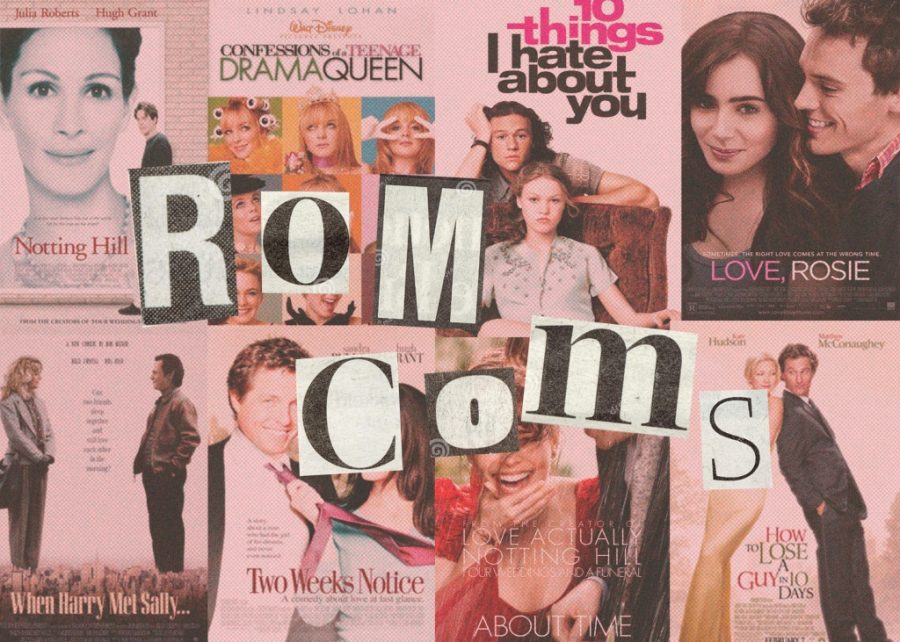Rom-Coms: A Woman’s Horror Movie
February 15, 2023
From perky pop songs to swoon-worthy storylines, the Rom-Com is a quintessential genre that defined an entire generation. Peaking in popularity around the early 2000s, many currently view these movies with an opinion clouded by nostalgia. Audiences love the light-hearted plot lines and romantic tropes and looking back now, it is evident that they were a product of the times. Regardless of how enjoyable some aspects of these movies are, there is no question that they project some deeply problematic themes. Society must begin to take a deep dive into this definitive genre with a critical gaze, acknowledging all the faults and misogynistic messages that have been conveyed over the years.
At first glance, these movies might not seem particularly problematic, but a further investigation into the genre showcases a story of extreme misogyny, patriarchal values, and unattainable beauty standards. While romantic comedies seem to cast strong women as the predominant stars, a study by Medium reveals a strange truth about the power dynamics between the two romantic leads. According to their investigation, 21 of the 32 fictional couples discussed portrayed men in jobs or roles that held power over their respective female partners. This is a colossal amount compared to the mere four women that held more influence in their occupations. This subtle furthering of stereotypical gender ‘norms’ is outdated at best and outstandingly sexist at worst.
Worst of all, the content being portrayed is designed to be attractive to younger audiences.
With cheerful music sequences and relatable characters, majority of rom-com viewers are usually teenagers. This age group is also far more prone to influence from different media forms, whether that be positive or negative. An example of detrimental influence in Romantic Comedies can be spotted in one of their most definitive scenes: the makeover. Someone who is considered unattractive by the film characters is stuck in a chair, often against their will, and walks out looking beautiful. These are the clips that gather countless views on social media long after their release. Boasting colourful montages and a catchy soundtrack, a classic fixer-upper scene can be spotted in most romantic movies from the era.
Worryingly, these seemingly harmless makeovers all focus heavily on validation from the male gaze. The female lead’s personal likes and dislikes are thrown out the window as she is forcefully conformed to society’s warped perception of beauty. Everything from the main character’s freshly straightened hair to their newfound make-up skills also adheres solely to Eurocentric beauty standards. The scene in the film “Princess Diaries” perfectly captures this message. Rather than teaching the teenage protagonist how to properly style and enhance her natural features, they are straightened and airbrushed away for her to become ‘beautiful’ \
The main issue with this movie trope is that it takes a stereotypically attractive actress, slaps a pair of glasses on their face, and deems the character unattractive. This message is even more harmful considering the young adult target audience to whom they are attempting to appeal. The media youngsters consume strongly impacts their belief system, and if young women are constantly fed the same outdated gender ideology, it will subsequently affect their view of the world and their place in it. Nonetheless, if the idea of a light-hearted romance movie appeals to you, there are a variety of movies that tick all the boxes without promoting these detrimental messages. A quick search on google for feminist Rom-Coms will provide you with a long list of worthwhile movies that don’t repeat this harmful ideology. The goal isn’t to stop people from watching this genre, but to educate the public on the harmful mistakes made in the past so society can do better in the future. And, who knows, maybe the golden era of Rom-Coms will make a return soon – only without the misogyny.













James H • Feb 17, 2023 at 3:03 pm
Amazing article – very well written!